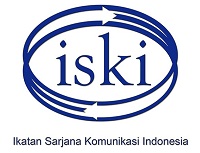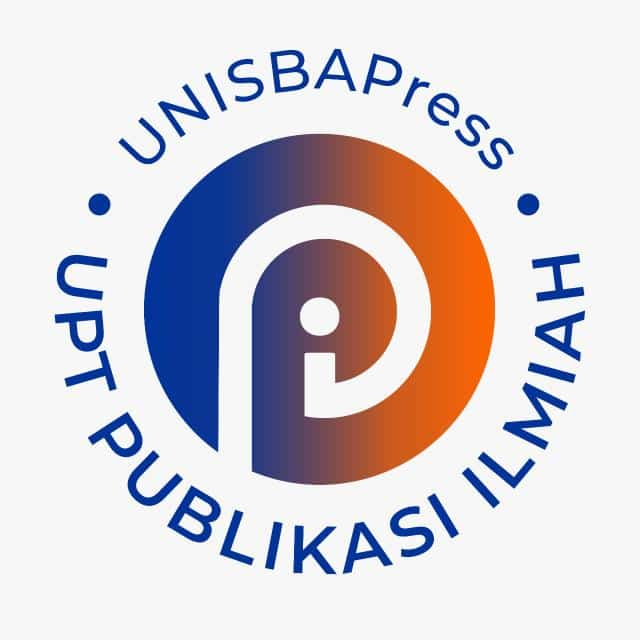Emerging the Submerged Realities of Mass Rape in the News of May 1998 Riot
DOI:
https://doi.org/10.29313/mediator.v17i2.3497Keywords:
framing, submerged discourses, CADS, gender and ethnic violenceAbstract
This study employs agenda-setting and media fragmenting theory alongside critical analysis of discourse studies (CADS) to scrutinize media dynamics during the May 1998 Riots in Indonesia. Agenda-setting and Media Framing theories analyze how the media prioritizes and frames specific issues. At the same time, CADS provides a method to present a detailed examination of language and representation in media texts. By analyzing 296 and 261 news articles from two of the most prominent Indonesian online newspaper platforms, the study investigates the submersion of discourses on gender and ethnic violence. Utilizing CADS, the research conducts frequency, collocation, concordance, cluster, and keyword analyses to uncover hidden narratives of gender and ethnic violence within the riot coverage. The analysis reveals significant gaps in discourse on racial and gender-based violence, highlighting the importance of identifying underlying narratives in news coverage. Additionally, the study underscores a void in the coverage of gender and ethnic violence discourses related to the May 1998 Riots, suggesting potential oversight or suppression of crucial aspects. This highlights the media's dual role as a reflector of events and an active influencer of public narratives.
References
Ahmadi, A. (2021). The traces of oppression and trauma to ethnic minorities in indonesia who experienced rape on the 12 may 1998 tragedy: A review of literature. Journal of Ethnic and Cultural Studies, 8(2), 126–144. https://doi.org/10.29333/ejecs/744
Ajakaiye, O. O. P., Rachael, O.-J., Owoeye, G., Ayantunji, K. A.-A., Apalowo, J. T., & Akerele-Popoola, O. E. (2023). Media and Public Opinion in West Africa: An Interplay of Agenda Setting, Agenda Building and Framing Theories. In Media and Communication Theory in Africa (pp. 151–179). Springer International Publishing. https://doi.org/10.1007/978-3-031-14717-3_7
Ancarno, C. (2020). Corpus-Assisted Discourse Studies. In A. De Fina & A. Georgakopoulou (Eds.), The Cambridge Handbook of Discourse Studies (pp. 165–185). Cambridge University Press. https://doi.org/10.1017/9781108348195.009
Bafadhal, O. M., Meilinda, N., Murti, K., & Santoso, A. D. (2020). What They Do Not Talk about When They Talk about Radicalism: (A Corpus-assisted Discourse Analysis on Islamic News Portals in Indonesia). Mediator: Jurnal Komunikasi, 13(2), 178–190. https://doi.org/10.29313/mediator.v13i2.5859
Baker, P. (2010). Sociolinguistics and Corpus Linguistics (P. Kerswill & J. Swann (eds.)). Edinburgh Sociolinguistics.
Beazer, A., Walter, S., Eldridge, S. A., & Palicki, S. K. (2023). On the Margins: Exploring Minority News Media Representations of Women during the COVID-19 Pandemic. Digital Journalism, 0(0), 1–20. https://doi.org/10.1080/21670811.2023.2206039
Belair-Gagnon, V., Holton, A. E., & Westlund, O. (2019). Space for the liminal. Media and Communication, 7(4), 1–7. https://doi.org/10.17645/mac.v7i4.2666
Budiyanto, L. (2022). The Control Over Perception of Mass Violence Through Strategic Labelling. Diskursus, 18(2), 192–217.
Cavanaugh, P. (2014). Mass Shootings, Mass Media, and Mass Opinion: An Examination of How the News Media Affects Public Opinion in the Aftermath of Mass Shootings. Res Publica-Journal of Undergraduate Research, 19(1). http://digitalcommons.iwu.edu/respublica/vol19/iss1/8http://digitalcommons.iwu.edu/respublica/vol19/iss1/8
Chasana, R. R. B., Putri, D. A. P., & Vernanda, Y. (2023). A Content Analysis of Polemics in a Regulation Regarding Sexual Violence on Campus. Mediator: Jurnal Komunikasi, 16(2), 144–155. https://doi.org/10.29313/mediator.v16i1.2217
Coleman, R., McCombs, M., Shaw, D., & Weaver, D. (2020). Agenda Setting. In K. Wahl-Jorgensen & T. Hanitsch (Eds.), The Handbook of Journalism Studies (2nd ed.). Routledge: Taylor & Francis Group.
Griffin, E., Ledbetter, A., & Sparks, G. (2018). A First Look at Communication Theory (10th ed.). McGraw-Hill Education.
Gross, T., & Zilber, T. B. (2020). Power Dynamics in Field-Level Events: A Narrative Approach. Organization Studies, 41(10), 1369–1390. https://doi.org/10.1177/0170840620907197
Guo, L., Mays, K., Zhang, Y., Wijaya, D., & Betke, M. (2021). What Makes Gun Violence a (Less) Prominent Issue? A Computational Analysis of Compelling Arguments and Selective Agenda Setting. Mass Communication and Society, 24(5), 651–675. https://doi.org/10.1080/15205436.2021.1898644
Himawan, E. M., Louis, W., & Pohlman, A. (2022). Indonesian Civilians’ Attributions for Anti-Chinese Violence During the May 1998 Riots in Indonesia. Journal of Social and Political Psychology, 10(2), 536–553. https://doi.org/10.5964/jspp.5489
Himawan, E. M., Pohlman, A., & Louis, W. (2022). Revisiting the May 1998 Riots in Indonesia: Civilians and Their Untold Memories. Journal of Current Southeast Asian Affairs, 41(2), 240–257. https://doi.org/10.1177/18681034221084320
Joharry, S. A. (2020). Examining Malaysian Public Letters to Editor on COVID-19 Pandemic: A Corpus-assisted Discourse Analysis. GEMA Online® Journal of Language Studies, 20(3), 242–260. https://doi.org/10.17576/gema-2020-2003-14
Karlina, Y. (2023). Corpus-Assisted Discourse Study (Cads): Women With Disabilities in Kompas.Com’S News Reporting. RETORIKA: Jurnal Bahasa, Sastra, Dan Pengajarannya, 16(2). https://doi.org/10.26858/retorika.v16i2.45222
Langer, A. I., & Gruber, J. B. (2021). Political Agenda Setting in the Hybrid Media System: Why Legacy Media Still Matter a Great Deal. International Journal of Press/Politics, 26(2), 313–340. https://doi.org/10.1177/1940161220925023
Luo, Y., Burley, H., Moe, A., & Sui, M. (2019). A Meta-Analysis of News Media’s Public Agenda-Setting Effects, 1972-2015. Journalism and Mass Communication Quarterly, 96(1), 150–172. https://doi.org/10.1177/1077699018804500
Matusitz, J., & Ochoa, D. (2018). Agenda-Setting Theory in the U.S. Media: A Comparative Analysis of Terrorist Attacks in France and Nigeria. Global Media Journal, 16(31), 1. https://search.proquest.com/docview/2162427823?accountid=17215%0Ahttps://limo.libis.be/services/KULeuven?url_ver=Z39.88-2004&rft_val_fmt=info:ofi/fmt:kev:mtx:journal&genre=unknown&sid=ProQ:ProQ%3Asociology&atitle=Agenda-Setting+Theory+in+the+U.S.+Media%3A
Ndhlovu, M. P. (2020). Examining media discourses on religious rape in Zimbabwe. Feminist Media Studies, 20(6), 801–812. https://doi.org/10.1080/14680777.2020.1722724
Pahlevi, R. (2022). Ini Media Online Paling Banyak Dikonsumsi Warga Indonesia. Katadata. https://databoks.katadata.co.id/datapublish/2022/06/16/ini-media-online-paling-banyak-dikonsumsi-warga-indonesia
Princen, S. (2018). Agenda-Setting and Framing in Europe. In The Palgrave Handbook of Public Administration and Management in Europe (pp. 535–551). Palgrave Macmillan UK. https://doi.org/10.1057/978-1-137-55269-3_28
Randy, D., & Witarti, D. I. (2021). BBC Allegedly Used Leave Campaigners Ideology to Frame EU Referendum. Mediator: Jurnal Komunikasi, 14(1), 124–136. https://doi.org/10.29313/mediator.v14i1.6802
Setiawan, K. M. P. (2022). Struggling for justice in post-authoritarian states: human rights protest in Indonesia. The International Journal of Human Rights, 26(3), 541–565. https://doi.org/10.1080/13642987.2021.1947805
Downloads
Published
Issue
Section
License
Copyright (c) 2024 Kezia Sola Gratia

This work is licensed under a Creative Commons Attribution-ShareAlike 4.0 International License.























